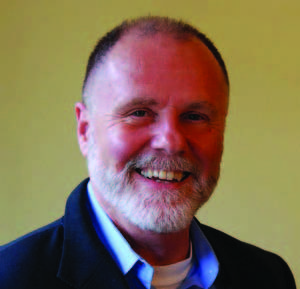 From an email I received a while back: “I’m a very good looking guy. People say I have movie star looks and everywhere I go, people stare. I’m not bragging about this; it’s just a fact. I understand that I didn’t do anything to earn my looks, and I know full well that they don’t make me better than anyone else.
From an email I received a while back: “I’m a very good looking guy. People say I have movie star looks and everywhere I go, people stare. I’m not bragging about this; it’s just a fact. I understand that I didn’t do anything to earn my looks, and I know full well that they don’t make me better than anyone else.
But I just wish more gay guys knew that! Here’s something that happened recently that is fairly typical. I went into a bar after work to have a drink and unwind. I sat in the back and avoided eye contact because I just wanted to relax, and didn’t feel like talking with anyone. A man walked up to me and started telling me I was the hottest guy he’d ever seen and that he wanted me to go home with him immediately. This wasn’t about alcohol because he wasn’t drunk.
He went on and on about what a wonderful guy I was without knowing anything about me. It turned me off. I tried to be polite and tell him ‘no thanks,’ but he wouldn’t take no for an answer. He started pawing and kissing on me and I literally had to break his grip. I finally told him to leave me alone and walked to the other end of the bar. A few minutes later he followed me, yelled at the top of his lungs, told me I had ‘attitude’ and then stalked out. Some of the other guys in the place, who hadn’t seen what had just happened, gave me hostile looks as if I must have done something wrong. I went to the bar to relax, but left completely stressed out.
Don’t tell me that this happens all the time in bars and just to get over it. I know it sometimes happens to other people, but I get harassed like this all the time—on the street, in coffee shops, in buses, everywhere. More and more I just avoid going out alone. People give me all this power to make them happy, and put expectations on me that I can’t live up to, and then feel rejected when I don’t do what they want. I wish more guys understood that being good-looking doesn’t mean I’m the cure for all their problems. I know that because of my looks I have privilege that not everyone has—I really do—but there is a downside, and it’s real.”
I’ve shared this communication with a number of people. Their reactions are usually strong, and often split along gender lines. In general, women are empathic and sympathetic with the writer, while men are far more likely to respond contemptuously—he must be doing something to cause these reactions, he should stop feeling sorry for himself, etc. To me, this email is a reminder of how invariably destructive “otherizing” is. When we demonize people, it’s easy to lose sight of their humanity. That’s obvious enough. But when other people are the objects of our idealizing projections, whether because of their wealth, their power, or their sexual attractiveness, something similar often happens.
When we’re captivated by someone’s beauty, it’s easy to attribute positive personality traits to them that they may or may not have, and to ignore negative traits that might be glaringly obvious. I’ve met so many gay men who uncritically assume that they’d find true happiness if that hot man over there would just deign to love them, or at least have sex with them. And if he doesn’t show any interest, their self-doubts instantly mobilize. It’s me: I’m not handsome enough, not cool enough, or not lovable enough, to be worthy in the eyes of this walking god.
Too often defensive anger, indignation and bitterness ensue, and the scene that the writer described follows. Meanwhile, the man on the receiving end is reduced to being the spectator of a drama of seduction, betrayal and abandonment that, in reality, isn’t about him at all. This is a particular instance of a fact that seems to be very difficult for many people to grasp—that much of what we assume about the people we admire or envy is a figment of our imaginations, a creation of our own projected fears and longings.
Tom Moon is a psychotherapist in San Francisco. To learn more, please visit his website at tommoon.net
Recent Comments